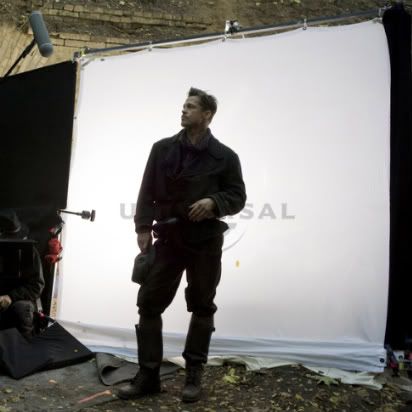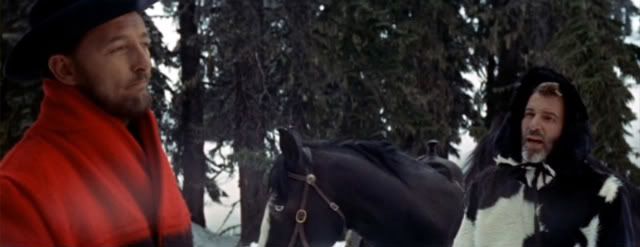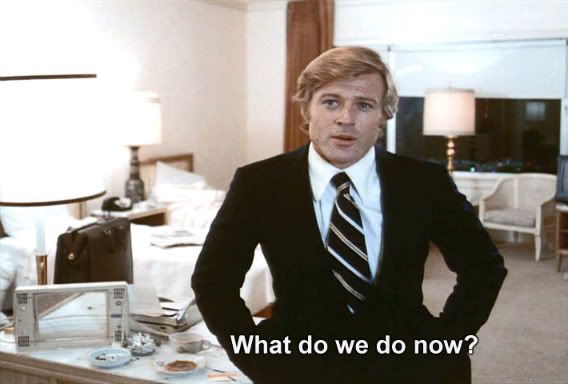domingo, 30 de novembro de 2008
sábado, 29 de novembro de 2008
Ron Haviv
'Blood and Honey: A Balkan War Journal'
(de um documentário que apanho pela segunda vez esta semana na sic notícias)
(na amazon.co.uk, preço mais barato, livro usado: £92.27)
(de um documentário que apanho pela segunda vez esta semana na sic notícias)
(na amazon.co.uk, preço mais barato, livro usado: £92.27)
segunda-feira, 24 de novembro de 2008
OBEY
Ando amortalhado e com uma paixão por esta marca capaz da ruína. Nomeadamente por toda esta secção da dita. Quem me descobrir a marca por Lisboa tem o meu eterno apreço. Chegámos àquele ponto raro do ano em que me torno 'fashion addicted' (a expressão não é, de todo, minha). Necessidade arrogante de roupa nova. Peço que acreditem, não sou sempre assim: ando negligente, descuidado, com um penteado desumano e "magro como um cão" (© mi madre). Possuo um talento incorruptível para me tornar numa calamidade. O sítio onde trabalho anda em guerra civil. Eu no meio. Em igual dia fui adjectivado de 'certinho' (expressão que me humilha) e 'irascível' (expressão que me cativa). O mundo das hipóteses é amplo e pavoroso. O perfume de uma colega paralisa-me; o sorriso de outra dá-me um tremor quente de prazer no queixo. Um dos meus 'chefes' tem um livro publicado; mandou-mo ler; está esgotado em todo o santo lado. Morro de chatice com 'smileys', seja em mensagem de telemóvel ou mail, dão-me vontade de beber uma garrafa de Becherovka numa vintena de tragos. No fim-de-semana queria/devia ter escrito algo e não o fiz. Passei a tarde e a noite de domingo de falso começo em falso começo. O mestrado corre mal. Mentira: nem bem nem mal, não corre. Resquícios de uma juventude descuidada, cedo derrotado por estupidez e preguiça. Como já dei a entender, sou distraído: descobri ontem, dia 23 de Novembro de 2008, que a Natalie Portman é bela. Mais simples a vejo, mais bela me parece. As t-shirts da Insight também são uma pequena delícia. Escutai, pela vossa saúde, o 'Microcastle' dos Deerhunter. Vejam, assim possam, o 'The Long Gray Line' e o 'The Last Hurrah' do Ford. E Richard Yates, leiam-no, seja o que for, é bonito. Era isto: OBEY, Insight, Portman, Ford, Deerhunter e Yates. Assuntos mui prementes, está visto. (Este post foi, quase por inteiro, patrocinado pela rede sem fios (da) 'bolota'.)
sábado, 22 de novembro de 2008
cá a 04 de Dezembro
*quer-me parecer que é a melhor música do álbum. Mas pode bem ser a 'In the New Year' ou a 'Postcards from Tiny Islands' ou a 'I lost you' ou ou ou. Disco de fantasmas, rico disco. Perdi-lhes o rasto depois de 'Everyone Who Pretended to Like Me Is Gone' e 'Bows and Arrows'. Um dia antes desta gente, Jack Rose + Norberto Lobo.
terça-feira, 18 de novembro de 2008
'Land of Mordor'
By the beginning of 1991, Serbia had become known as the 'Land of Mordor' among foreign journalists in Yugoslavia, thus honouring J. R. R. Tolkien's dark vision of a fallen kingdom. Elections in December 1990 had conferred a dubious democratic legitimacy on the presidency of Slobodan Milosevic. His victory at the polls had deepened fears among Serbia's fragile liberal establishment that this 'Emperor of the Night' would now go on to fulfil the bleakest of the prophecies which had multiplied since September 1987, the month in which Milosevic carried out a political assassination on his erstwhile mentor, Ivan Stambolic, thereby assuming the leadership of the Serbian Communist Party.
The drive towards war in Yugoslavia could not have been as dynamic as it was had it not been for the extraordinary personality of Slobodan Milosevic, the most paradoxical of dictators. He is a man without passion, without any real nationalist motivation (althought on the surface, he appears to wallow in it), and he is man who has never shown any affection on regard for the masses upon whom he depends for support. Yet he is without doubt the single most influential post-war politician in Yugoslavia after Tito. Indeed there is a strong, rather depressing case for suggesting that Milosevic may leave a deeper impression on history than Tito. Whereas the Partizan leader succeeded in ending the mass slaughter of Croats and Serbs born of the complex conflict which developed among the ruins of monarchist Yugoslavia during the Second World War, Milosevic has invoked those spirits of violence and unleashed them to turn the sleepy backwater which the post-war Balkans had become into the pathologically unstable region that it was for the first half of the twentieth century.
('The Fall of Yugoslavia', Misha Glenny, Penguin Books, às páginas tantas)
The drive towards war in Yugoslavia could not have been as dynamic as it was had it not been for the extraordinary personality of Slobodan Milosevic, the most paradoxical of dictators. He is a man without passion, without any real nationalist motivation (althought on the surface, he appears to wallow in it), and he is man who has never shown any affection on regard for the masses upon whom he depends for support. Yet he is without doubt the single most influential post-war politician in Yugoslavia after Tito. Indeed there is a strong, rather depressing case for suggesting that Milosevic may leave a deeper impression on history than Tito. Whereas the Partizan leader succeeded in ending the mass slaughter of Croats and Serbs born of the complex conflict which developed among the ruins of monarchist Yugoslavia during the Second World War, Milosevic has invoked those spirits of violence and unleashed them to turn the sleepy backwater which the post-war Balkans had become into the pathologically unstable region that it was for the first half of the twentieth century.
('The Fall of Yugoslavia', Misha Glenny, Penguin Books, às páginas tantas)
sábado, 15 de novembro de 2008
(...) With Russian tanks only 30 miles from Tbilisi on August 12, Mr Sarkozy told Mr Putin that the world would not accept the overthrow of Georgia’s Government. According to Mr Levitte, the Russian seemed unconcerned by international reaction. “I am going to hang Saakashvili by the balls,” Mr Putin declared.
With Russian tanks only 30 miles from Tbilisi on August 12, Mr Sarkozy told Mr Putin that the world would not accept the overthrow of Georgia’s Government. According to Mr Levitte, the Russian seemed unconcerned by international reaction. “I am going to hang Saakashvili by the balls,” Mr Putin declared.
Mr Sarkozy, using the familiar tu, tried to reason with him: “Yes but do you want to end up like [President] Bush?” Mr Putin was briefly lost for words, then said: “Ah — you have scored a point there.” (...)
(The Times)
With Russian tanks only 30 miles from Tbilisi on August 12, Mr Sarkozy told Mr Putin that the world would not accept the overthrow of Georgia’s Government. According to Mr Levitte, the Russian seemed unconcerned by international reaction. “I am going to hang Saakashvili by the balls,” Mr Putin declared.
Mr Sarkozy, using the familiar tu, tried to reason with him: “Yes but do you want to end up like [President] Bush?” Mr Putin was briefly lost for words, then said: “Ah — you have scored a point there.” (...)
(The Times)
domingo, 9 de novembro de 2008
Alessandro Del Piero (Conegliano, 9 novembre 1974)
21 Outubro:
05 Novembro:
09 Novembro (hoje):
(E a delícia que tem sido o Barça do Guardiola?)
05 Novembro:
09 Novembro (hoje):
(E a delícia que tem sido o Barça do Guardiola?)
quinta-feira, 6 de novembro de 2008
'Inglourious Basterds' ou um admirável pretexto para uma foto da Mélanie Laurent

Brad Pitt - Lt. Aldo Raine

Mélanie Laurent - Shosanna Dreyfus
quarta-feira, 5 de novembro de 2008
No calor da noite, esqueci-me de saudar os bloggers portugueses que acolheram a designação de Sarah Palin para candidata a VP como uma escolha «brilhante» de John McCain. É esta argúcia que lhes tem valido darem hoje opinião em tudo quanto é jornal, estação de rádio ou canal de televisão portugueses. É o chamado «circo mediático». Embora eu não esteja certo de que esta expressão contenha alguma metáfora.
(ex-Ivan Nunes, via Margens de erro)
(ex-Ivan Nunes, via Margens de erro)
O discurso de concessão de John McCain é de uma elegância extrema. Queria sublinhar bem isto: aquilo é de uma elegância indecente, que merece ser visto e revisto até ao enjoo extremo. Aquele é o McCain que dificilmente não se pode estimar. Por onde andou escondido em todo o raio da campanha é que me escapa. A campanha de McCain enquanto candidato nomeado do partido republicano foi horrenda, penosa, sempre algures entre o errante, o tacticismo imbecil e a irresponsabilidade indefensável (Sarah Palin) - e tudo isto me parece impossível de esquecer. Pasmou-me a conivência de McCain nos mais patéticos ataques de carácter a Obama, quando McCain, ele mesmo, foi 'comido' de igual forma indigna por W. Bush nas primárias republicanas de 2000.
Mas retorno ao discurso final de McCain: é o ponto alto do que veio do campo GOP em todos estes meses infindáveis - a par com os vídeos narrados pelo Robert Duvall na convenção republicana, a que nunca fiz referência. (Isto dirá o que foi a campanha republicana.) E por um digníssimo discurso final obrigo-me a acabar o livro do David Foster Wallace que ficou a meio caminho.
Mas retorno ao discurso final de McCain: é o ponto alto do que veio do campo GOP em todos estes meses infindáveis - a par com os vídeos narrados pelo Robert Duvall na convenção republicana, a que nunca fiz referência. (Isto dirá o que foi a campanha republicana.) E por um digníssimo discurso final obrigo-me a acabar o livro do David Foster Wallace que ficou a meio caminho.
terça-feira, 4 de novembro de 2008
'How to Read Like a President '
(...) The current nominees for president also offer revealing choices when asked which books have been most important to them. John McCain has long spoken of his affection for, and identification with, Robert Jordan, the protagonist of Ernest Hemingway’s “For Whom the Bell Tolls.” After I interviewed McCain this past summer — a conversation in which we discussed Jordan at some length — I reread the conclusion of the novel. The lingering image of the final scene is not one of death but of Jordan, the college professor who has come to Spain to fight the fascists, wounded yet still alive, taking aim at the enemy, his heart still beating against the forest floor. Hemingway does not kill Jordan but leaves him there, engaged to the end in the battles of his time.
McCain sees himself in the same way: as a warrior who never gives in, and never gives up, no matter how hopeless the cause. “Oh, I reread it all the time,” McCain told me. “Robert Jordan is what I always thought a man ought to be.” Jordan’s essential creed is encapsulated in a sentence that gave McCain the title of one of the books he has written with his aide Mark Salter: “The world is a fine place and worth the fighting for and I hate very much to leave it.” It’s not hard to see how the line would resonate with a romantic fatalist like McCain.
In captivity, McCain used to act out scenes from books and movies to keep his mind sharp. In addition to Hemingway, he loves the stories of W. Somerset Maugham, “The Great Gatsby,” “All Quiet on the Western Front” and James Fenimore Cooper’s Leatherstocking Tales, especially “The Last of the Mohicans” (he remembers the N. C. Wyeth illustrations). He likes William Faulkner in, as he told me, “small doses,” especially “The Bear” and “Turnabout.” McCain speaks of nonfiction less often but told me he has read — twice — Gibbon’s “Decline and Fall of the Roman Empire.”
Most interesting, though, was McCain’s reaction when I suggested that his father, a career naval officer who rose to be commander in chief of the Pacific forces during the Vietnam War, was rather like Victor (Pug) Henry, the hero of Herman Wouk’s “Winds of War” and “War and Remembrance.” Exactly, McCain said: his father was exactly like Pug Henry. Later, I reread the last pages of “The Winds of War.” In them, Henry watches his son set sail from Pearl Harbor aboard the U.S.S. Enterprise: “He could almost picture God the Father looking down with sad wonder at this mischief. In a world so rich and lovely, could his children find nothing better to do than to dig iron from the ground and work it into vast grotesque engines for blowing each other up? Yet this madness was the way of the world.”
McCain and Obama are so different in so many ways, but they do share one thing: a kind of tragic sensibility. Judging from the books they cite as most important, they embrace hope but recognize the reality that life is unlikely to conform to our wishes. They mention Shakespeare’s tragedies, “For Whom the Bell Tolls” and David Halberstam’s “Best and the Brightest.” Like Robert Jordan, they want to make things better and are willing to put themselves in the arena, but they know that nothing is perfectible and that progress is provisional. Things fall apart; plans fail; planes are shot out of the sky. Their attraction to Hemingway suggests a willingness to acknowledge unpleasant facts not always found in those who enter elective politics.
When I asked him by e-mail to send a list of books and writers that were most significant to him, Obama offered American standards: The Federalist, Jefferson, Emerson, Lincoln, Twain, W. E. B. Du Bois’s “Souls of Black Folk,” King’s “Letter From Birmingham Jail,” James Baldwin, and Toni Morrison’s “Song of Solomon.” Among writers from abroad, he singles out Graham Greene (“The Power and the Glory” and “The Quiet American”), Doris Lessing (“The Golden Notebook”), Aleksandr Solzhenitsyn’s “Cancer Ward” and Gandhi’s autobiography. In theology and philosophy Obama mentioned Nietzsche, Niebuhr and Tillich — writers consistent with his acknowledgment that while life is bleak, it is not hopeless.
Obama, unsurprisingly, appears to be more drawn to stories sympathetic to the working classes than is McCain. Obama cites John Steinbeck’s “In Dubious Battle,” about a labor dispute; Robert Caro’s “Power Broker,” about Robert Moses; and Studs Terkel’s “Working.” But he also includes Adam Smith’s “Wealth of Nations” and “Theory of Moral Sentiments” on his list.
Both candidates are fond of Robert Penn Warren’s “All the King’s Men,” a novel about a corrupt Southern governor modeled on Huey Long, though he is also a kind of Jacksonian figure. The last line of the novel reads, “Soon now we shall go out of the house and go into the convulsion of the world, out of history into history and the awful responsibility of Time.” Either John McCain or Barack Obama is about to make that same journey. “I was born for the storm,” Andrew Jackson once said, “and a calm does not suit me.” Born for it or not, the 44th president, whoever he is, is in for rough weather.
Jon Meacham, no NYTimes
McCain sees himself in the same way: as a warrior who never gives in, and never gives up, no matter how hopeless the cause. “Oh, I reread it all the time,” McCain told me. “Robert Jordan is what I always thought a man ought to be.” Jordan’s essential creed is encapsulated in a sentence that gave McCain the title of one of the books he has written with his aide Mark Salter: “The world is a fine place and worth the fighting for and I hate very much to leave it.” It’s not hard to see how the line would resonate with a romantic fatalist like McCain.
In captivity, McCain used to act out scenes from books and movies to keep his mind sharp. In addition to Hemingway, he loves the stories of W. Somerset Maugham, “The Great Gatsby,” “All Quiet on the Western Front” and James Fenimore Cooper’s Leatherstocking Tales, especially “The Last of the Mohicans” (he remembers the N. C. Wyeth illustrations). He likes William Faulkner in, as he told me, “small doses,” especially “The Bear” and “Turnabout.” McCain speaks of nonfiction less often but told me he has read — twice — Gibbon’s “Decline and Fall of the Roman Empire.”
Most interesting, though, was McCain’s reaction when I suggested that his father, a career naval officer who rose to be commander in chief of the Pacific forces during the Vietnam War, was rather like Victor (Pug) Henry, the hero of Herman Wouk’s “Winds of War” and “War and Remembrance.” Exactly, McCain said: his father was exactly like Pug Henry. Later, I reread the last pages of “The Winds of War.” In them, Henry watches his son set sail from Pearl Harbor aboard the U.S.S. Enterprise: “He could almost picture God the Father looking down with sad wonder at this mischief. In a world so rich and lovely, could his children find nothing better to do than to dig iron from the ground and work it into vast grotesque engines for blowing each other up? Yet this madness was the way of the world.”
McCain and Obama are so different in so many ways, but they do share one thing: a kind of tragic sensibility. Judging from the books they cite as most important, they embrace hope but recognize the reality that life is unlikely to conform to our wishes. They mention Shakespeare’s tragedies, “For Whom the Bell Tolls” and David Halberstam’s “Best and the Brightest.” Like Robert Jordan, they want to make things better and are willing to put themselves in the arena, but they know that nothing is perfectible and that progress is provisional. Things fall apart; plans fail; planes are shot out of the sky. Their attraction to Hemingway suggests a willingness to acknowledge unpleasant facts not always found in those who enter elective politics.
When I asked him by e-mail to send a list of books and writers that were most significant to him, Obama offered American standards: The Federalist, Jefferson, Emerson, Lincoln, Twain, W. E. B. Du Bois’s “Souls of Black Folk,” King’s “Letter From Birmingham Jail,” James Baldwin, and Toni Morrison’s “Song of Solomon.” Among writers from abroad, he singles out Graham Greene (“The Power and the Glory” and “The Quiet American”), Doris Lessing (“The Golden Notebook”), Aleksandr Solzhenitsyn’s “Cancer Ward” and Gandhi’s autobiography. In theology and philosophy Obama mentioned Nietzsche, Niebuhr and Tillich — writers consistent with his acknowledgment that while life is bleak, it is not hopeless.
Obama, unsurprisingly, appears to be more drawn to stories sympathetic to the working classes than is McCain. Obama cites John Steinbeck’s “In Dubious Battle,” about a labor dispute; Robert Caro’s “Power Broker,” about Robert Moses; and Studs Terkel’s “Working.” But he also includes Adam Smith’s “Wealth of Nations” and “Theory of Moral Sentiments” on his list.
Both candidates are fond of Robert Penn Warren’s “All the King’s Men,” a novel about a corrupt Southern governor modeled on Huey Long, though he is also a kind of Jacksonian figure. The last line of the novel reads, “Soon now we shall go out of the house and go into the convulsion of the world, out of history into history and the awful responsibility of Time.” Either John McCain or Barack Obama is about to make that same journey. “I was born for the storm,” Andrew Jackson once said, “and a calm does not suit me.” Born for it or not, the 44th president, whoever he is, is in for rough weather.
Jon Meacham, no NYTimes
domingo, 2 de novembro de 2008
três dias
1946
22 de Fevereiro.
Recomeçaste a passar a noite sozinho, no pequeno cinema, sentado a um canto, fumando, saboreando a vida e o fim do dia. Olhas o filme como um garoto - pela aventura, pela pequena emoção estética ou mnemónica. E gozas, gozas imensamente. Será assim aos setenta anos, se lá chegares.
23 de Fevereiro.
Algo acaba. Dás por isso porque, quando te abandonas e te sentas para fumar, ficas inquieto e ansioso. Será que receias a vida prática? Não. Receias o teu vazio.
Esta cidade não tem recordações.
24 de Fevereiro.
Novamente só. A tua casa agora é o escritório, um cinema, dois maxilares cerrados.
Na história de uma paixão, o fim deveria ser marcado pela necessidade de voltar a casa, de isolamento.
(Pavese, O Ofício de Viver , Relógio d’Água, pág. 299)
22 de Fevereiro.
Recomeçaste a passar a noite sozinho, no pequeno cinema, sentado a um canto, fumando, saboreando a vida e o fim do dia. Olhas o filme como um garoto - pela aventura, pela pequena emoção estética ou mnemónica. E gozas, gozas imensamente. Será assim aos setenta anos, se lá chegares.
23 de Fevereiro.
Algo acaba. Dás por isso porque, quando te abandonas e te sentas para fumar, ficas inquieto e ansioso. Será que receias a vida prática? Não. Receias o teu vazio.
Esta cidade não tem recordações.
24 de Fevereiro.
Novamente só. A tua casa agora é o escritório, um cinema, dois maxilares cerrados.
Na história de uma paixão, o fim deveria ser marcado pela necessidade de voltar a casa, de isolamento.
(Pavese, O Ofício de Viver , Relógio d’Água, pág. 299)
Subscrever:
Mensagens (Atom)
Arquivo do blogue
-
▼
2008
(196)
-
▼
novembro
(17)
- o instinto não gasta tempo em aclarações
- Ron Haviv
- Sem título
- OBEY
- cá a 04 de Dezembro
- 'Track of the Cat', 54, William A. Wellman
- 'Land of Mordor'
- (...) With Russian tanks only 30 miles from Tbilis...
- Alessandro Del Piero (Conegliano, 9 novembre 1974)
- 'Inglourious Basterds' ou um admirável pretexto pa...
- No calor da noite, esqueci-me de saudar os blogger...
- O discurso de concessão de John McCain é de uma el...
- 'The Candidate', 1972
- 'How to Read Like a President '
- Sem título
- três dias
- Sem título
-
▼
novembro
(17)
blogues
- A Causa Foi Modificada
- a divina desordem
- A montanha mágica
- A Origem das Espécies
- agrafo
- Ainda não começámos a pensar
- Amarcord
- ana de amsterdam
- Animais Domésticos
- Anotacões de um Cinéfilo
- ARCO Argentina ter plaatse
- As Aranhas
- as invasões bárbaras
- Auto-retrato
- avatares de um desejo
- Bibliotecário de Babel
- Bomba Inteligente
- Caustic Cover Critic
- chanatas
- Ciberescritas
- Complexidade e Contradição
- Complicadíssima Teia
- Da Literatura
- dias felizes
- Disco Duro
- Duelo ao Sol
- e deus criou a mulher
- Esse Cavalheiro
- Estado Civil
- ex-Ivan Nunes
- gravidade intermédia
- Horitzons inesperats
- If Charlie Parker Was a Gunslinger, There'd Be a Whole Lot of Dead Copycats
- Intriga Internacional
- irmaolucia
- Joel Neto
- jugular
- Já Chovem Sapos
- lado “b” da minha mente
- Lei Seca
- Life and Opinions of Offely, Gentleman
- Léxico Familiar
- Margens de erro
- Menina Limão
- Mise en Abyme
- O Acossado
- O Anjo Exterminador
- O ente lectual
- O Falso Culpado
- O Inventor
- O Mundo pelos meus Olhos
- O Novo Selvagem
- o signo do dragão
- Ouriquense
- Pastoral Portuguesa
- Phantom Limb
- Poesia & Lda.
- Provas de Contacto
- Quetzal
- Ricardo Gross
- roda livre
- Sete Sombras
- Shakira Kurosawa
- sinusite crónica
- sound + vision
- State Of Art
- terapia metafísica
- the art of memory
- The Heart Is A Lonely Hunter
- umblogsobrekleist
- vida breve
- vidro duplo
- vontade indómita
- Voz do Deserto
«I always contradict myself»
Richard Burton em Bitter Victory, de Nicholas Ray.

